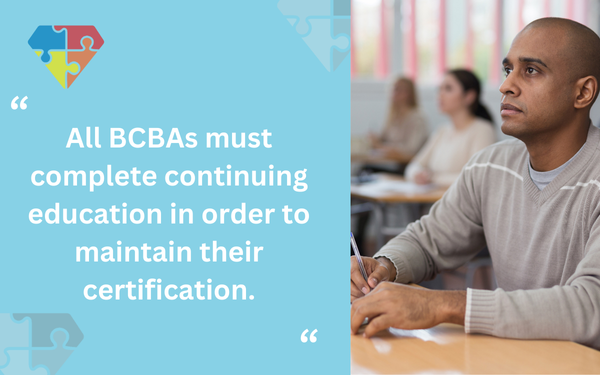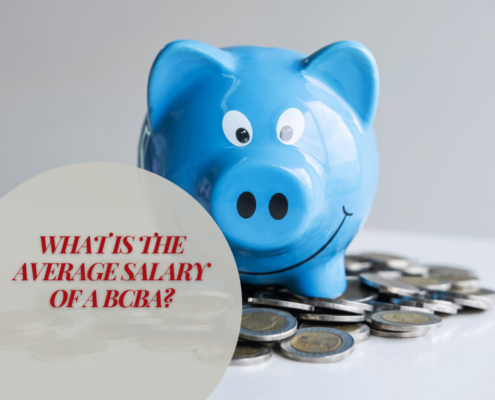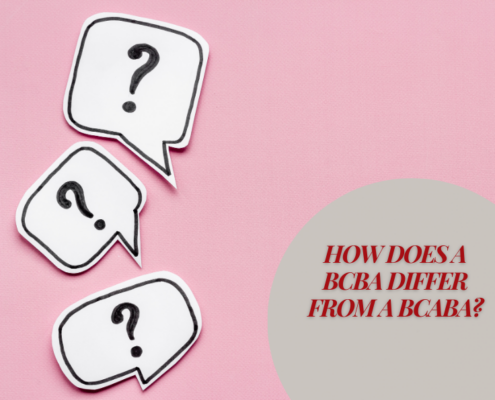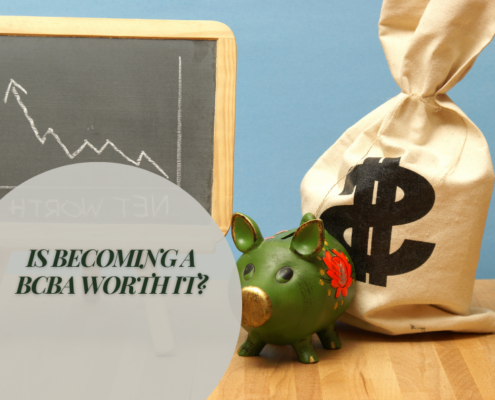What Qualifications Are Required to Become a BCBA?
Board Certified Behavior Analysts (BCBAs) have risen to the top of their field. This certification not only verifies that they have the knowledge and experience required to hold a leading position in applied behavior analysis (ABA therapy), but it also enables them to serve in certain roles that they couldn’t without it.
Gaining BCBA certification takes a lot of time, effort and financial investment. There are certain education, experience and testing requirements that are put into place, and they are designed to ensure that only the “best of the best” and those who are dedicated to the practice receive certification.
The entire process is created and governed by the Behavior Analyst Certification Board (BACB).
If you’re interested in becoming a BCBA, we have outlined below the qualifications that are required so that you can decide whether this is something you’d like to pursue.
Part of the complete guide on how to become a BCBA
Table Of Contents
Are There Multiple Pathways to Receive BCBA Certification?
The BACB is making changes to the BCBA certification process. While there used to be four different pathways that you could take to certification, there will be only two starting in 2027.
This means that unless you are already deep into the process, you will not be able to pursue BCBA certification under what will soon be known as the former Pathway 3 or Pathway 4.
| Pathway | Status After 2027 | Requirements |
|---|---|---|
| Pathway 1 | Still valid | Master’s degree from APBA/ABAI-accredited program |
| Pathway 2 | Still valid | Master’s degree (non-accredited) + additional coursework |
| Pathway 3 | Phasing out | Based on faculty teaching and research |
| Pathway 4 | Phasing out | Based on existing doctoral degrees |
Each of the two pathways that will still remain in 2027 both involve educational requirements and a potential for ongoing coursework, a set number of supervised fieldwork hours, passing an examination and completing ongoing continuing education requirements.
What Are the Educational Requirements to Become a BCBA?
Under Pathway 1, you must obtain at least a master’s degree from a program that’s accredited by the Association of Professional Behavior Analysts (APBA) or from an institution that’s accredited by the Association for Behavior Analysis International (ABAI).
Under Pathway 2, you still need to achieve a master’s degree or higher, but it doesn’t have to be at an institution that’s accredited by either of those organizations.
If you take Pathway 2, though, you will likely have to complete additional coursework in behavior analysis.
What Are the Fieldwork Requirements to Become a BCBA?
Regardless of the pathway that you take, you must complete a certain number of hours of supervised fieldwork. You either must complete 2,000 hours of regular supervised fieldwork or 1,500 hours of concentrated supervised fieldwork.

| Fieldwork Type | Required Hours | Supervision Percentage |
|---|---|---|
| Regular | 2,000 | 5% each period |
| Concentrated | 1,500 | 10% each period |
The person or people who are supervising these hours must fit into one of these categories:
- An active BCBA without any disciplinary sanctions who’s had certification for at least one year and meets the ongoing continuing education requirement
- An active BCBA without any disciplinary sanctions who’s had certification for less than one year but is receiving consultation on a monthly basis from a qualified consulting supervisor
- A registered or licensed psychologist certified in behavioral and cognitive psychology from the American Board of Professional Psychology who has been tested in ABA
- An authorized Verified Course Sequence instructor
| Supervisor Category | Requirements |
|---|---|
| Experienced BCBA | 1+ year certified, no sanctions, ongoing CEUs |
| New BCBA | Certified <1 year, must receive monthly consultation |
| Psychologist | Certified in behavioral/cognitive psychology and tested in ABA |
| VCS Instructor | Must be an authorized instructor |
Some candidates, in fact, will gain employment as a Registered Behavior Technician (RBT) or a Board Certified Assistant Behavior Analyst (BCaBA) first. Then, as they are completing their supervised fieldwork, they may receive financial reimbursement or other support from their employer to pay for part or all of their master’s degree program.
Is There an Exam You Have to Pass to Become a BCBA?
Once you have met all the educational and supervised fieldwork requirements, you must pass an official BCBA examination.
This is an in-person exam that includes 185 multiple-choice questions, with each question having four possible answers and only one of them being correct. Every candidate is given four hours to complete the exam.
| Exam Feature | Detail |
|---|---|
| Format | Computer-based, in-person |
| Questions | 185 multiple-choice |
| Time Limit | 4 hours |
| Immediate Results | Yes |
| Retake Policy | Allowed |
What Are the Continuing Education Requirements for a BCBA?
All BCBAs must complete continuing education in order to maintain their certification.

For each two-year recertification cycle BCBAs have to obtain 32 continuing education units, also known as CEUs. Four of these must be in ethics and three must be in supervision — if you serve in a supervisory position.
| CEU Type | Minimum Units Required |
|---|---|
| Total CEUs | 32 per 2 years |
| Ethics | 4 |
| Supervision (if applicable) | 3 |
These requirements, as well as all other requirements for BCBA certification, are detailed in much more depth in the BCBA Handbook.
Blue Gems ABA Helps Children with ASD Grow
There is much that goes into obtaining BCBA certification, which is why only a select percentage of those who work in the field of ABA therapy obtain it. These people have proven over years of schooling, training and experience in the field that they can lead ABA therapy teams and help all patients grow.
At Blue Gems ABA, we have an experienced team of BCBAs who support children with ASD every day, helping them to live more independent lives.
To learn more, please contact us today.










